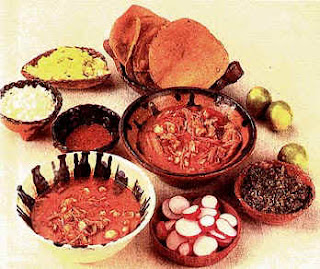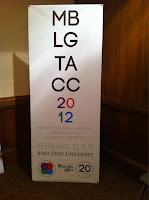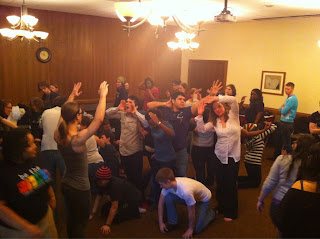Science Bound at Iowa State University is changing a generation through science and math education. Science Bound is a pre-college program to increase the number of ethnically diverse student who pursue ASTEM (agricultural, scientific, technical, engineering and mathematics) degrees.
Students are invited to participate during the end of their 7th grade year. Student participants must meet program requirements, including satisfactory completion of a science fair project and an essay that demonstrates a desire to give to, and learn from Science Bound. High school participants must maintain a grade point average of at least  3.0, participate in 75% of the program activities, and present a satisfactory oral justification yearly for continuation.
3.0, participate in 75% of the program activities, and present a satisfactory oral justification yearly for continuation.
Iowa State University provides core administrative and financial support, including scholarships. Regular meetings with teachers and visits to the Iowa State campus are the program's core. Additionally, students participate in summer academic programs, overnight retreats, and study tables.
Science Bound is an opportunity for students to learn more about higher education, and if the student successful completes the high school program, and meets the admissions to Iowa State, and pursue a technical degree, the student will receive a full-paid tuition scholarship from the university.
Students expose to higher education, at an early age, benefit by developing a more positive attitude towards science, math, and improve their academic achievement.
My first experience with Science Bound students was on Saturday, February 25, 2012 at the Iowa State campus. Over 200+ students participated in a day full of educational events and sessions. During each session students had the opportunity to learn more about the ASTEM degrees, ask questions to students, faculty and staff, and heard motivational speakers.
At the beginning of the day I was challenged to have meaningful interactions and conversations with the 7th - 12th grade students. At some point, I had to stop to think and reflect on my previous experience teaching 3rd grade and high school classes in Elsik High School, Houston, and asked myself how can I have an effective interaction with students.
I was challenged to interact with the students participating in the event, because I have been working with college students. College students are expected to be more mature, they are responsible for their own behavior and own learning. While high school students still need someone to consistently remind them about their behavior and responsibilities. Yes, there are some college students that still have not change their behavior or responsibility from high school, so responsibility is to challenge them to develop leadership and personal integrity, demonstrating respect for others, and understanding the value of individual responsibility and hard work.
In Science Bound I learned how to C.L.A.P. and how to help student succeed with P6.
Check your attitude
Lean in and learn
Ask and appreciate
Participate
P6 = Proper planning and preparation produces powerful performance.
During my experience with Science Bound I learned some new techniques to inspire the uninspired, how to have effective interactions with students. Also, it was a great opportunity for me to reflect on why I enjoy the work that I do: helping student succeed.




